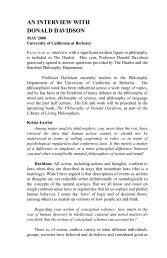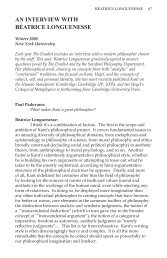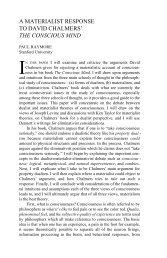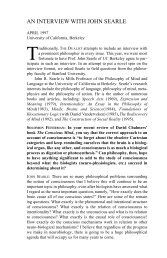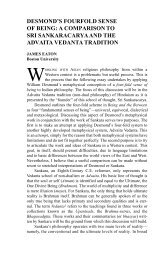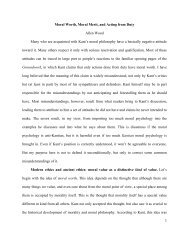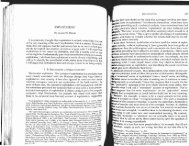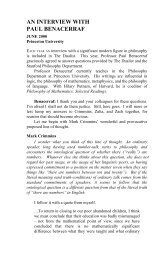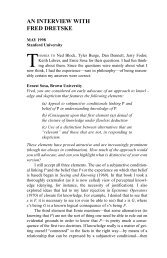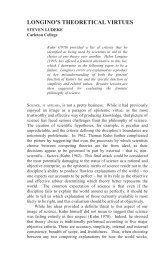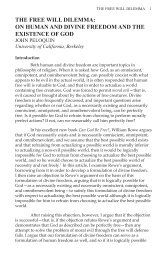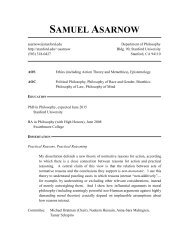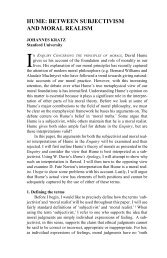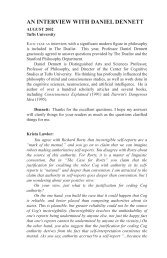The Independence of Right from Ethics Allen Wood Right and ethics ...
The Independence of Right from Ethics Allen Wood Right and ethics ...
The Independence of Right from Ethics Allen Wood Right and ethics ...
You also want an ePaper? Increase the reach of your titles
YUMPU automatically turns print PDFs into web optimized ePapers that Google loves.
value possessed by others as ends in themselves would ground the ethical claim that their rightshave on us as moral beings. <strong>The</strong>y could never ground the entitlement <strong>of</strong> one person to haveanother person coerced or externally constrained to respect their rights. That last claim, to thecoercive enforcement <strong>of</strong> external freedom as independence <strong>of</strong> another’s choice, is one thatbelongs to right alone. It could not be derived <strong>from</strong> <strong>ethics</strong>, since the claims <strong>of</strong> <strong>ethics</strong> are neverentitled to coercive enforcement. <strong>Right</strong> therefore rests solely on the claim any person has on anyother, <strong>from</strong> the impartial st<strong>and</strong>point <strong>of</strong> reason, to be left free to choose his actions in furtherance<strong>of</strong> his own ends, rather than being forced to choose them to serve the ends <strong>of</strong> someone else.<strong>The</strong> basis <strong>of</strong> right is the protection <strong>of</strong> external freedom, however it is used, hence not onany <strong>of</strong> the ends individuals might set. But the condition <strong>of</strong> right, in which the external freedom <strong>of</strong>all according to universal law is protected, is a condition into which we may all be coerced toenter (MS 6:256, 312). Preserving <strong>and</strong> perfecting such a condition can therefore also be seen asitself a kind <strong>of</strong> end. <strong>The</strong>se are the sole legitimate ends <strong>of</strong> politics <strong>and</strong> civil law, the only ends thata ruler or politician as such may rightly seek, <strong>and</strong> all actions <strong>of</strong> the public authority may bejustified only in relation to these ends. But it is still never the case that coercion can be justifiedmerely because it serves some valuable end or other. Human perfection, happiness <strong>and</strong>flourishing, for instance, are valuable ends, but no one may be coerced to promote them justbecause they are valuable. It is not because the condition <strong>of</strong> right -- its establishment orpreservation -- may be brought under the general concept <strong>of</strong> a valuable end that we may becoerced into such a condition or coerced to obey its laws or to fulfill duties <strong>of</strong> right. Rather,coercion can be justified only because, it is needed for the preservation <strong>of</strong> the freedom <strong>of</strong> allaccording to universal law, <strong>and</strong> the condition <strong>of</strong> right, is nothing except the condition in whichthis freedom is protected.12



